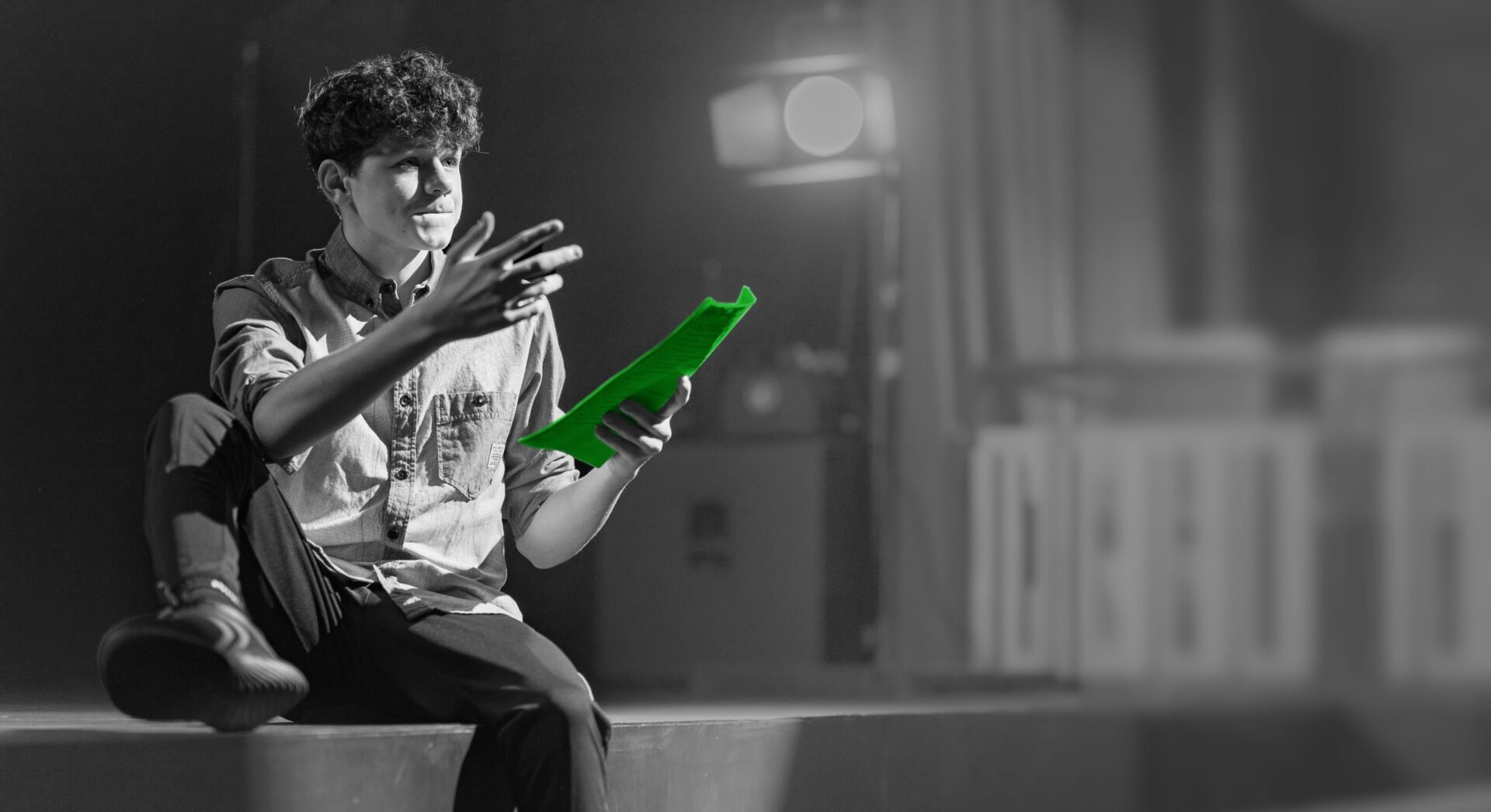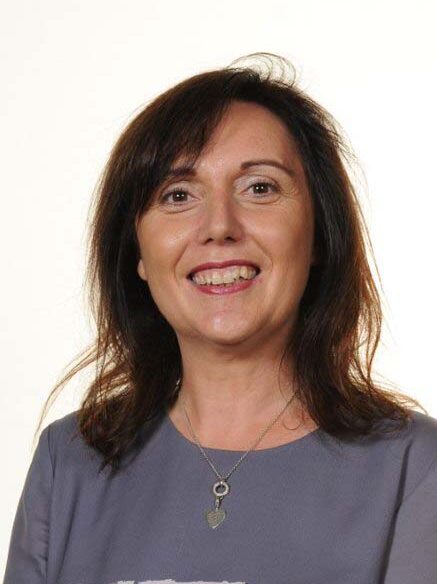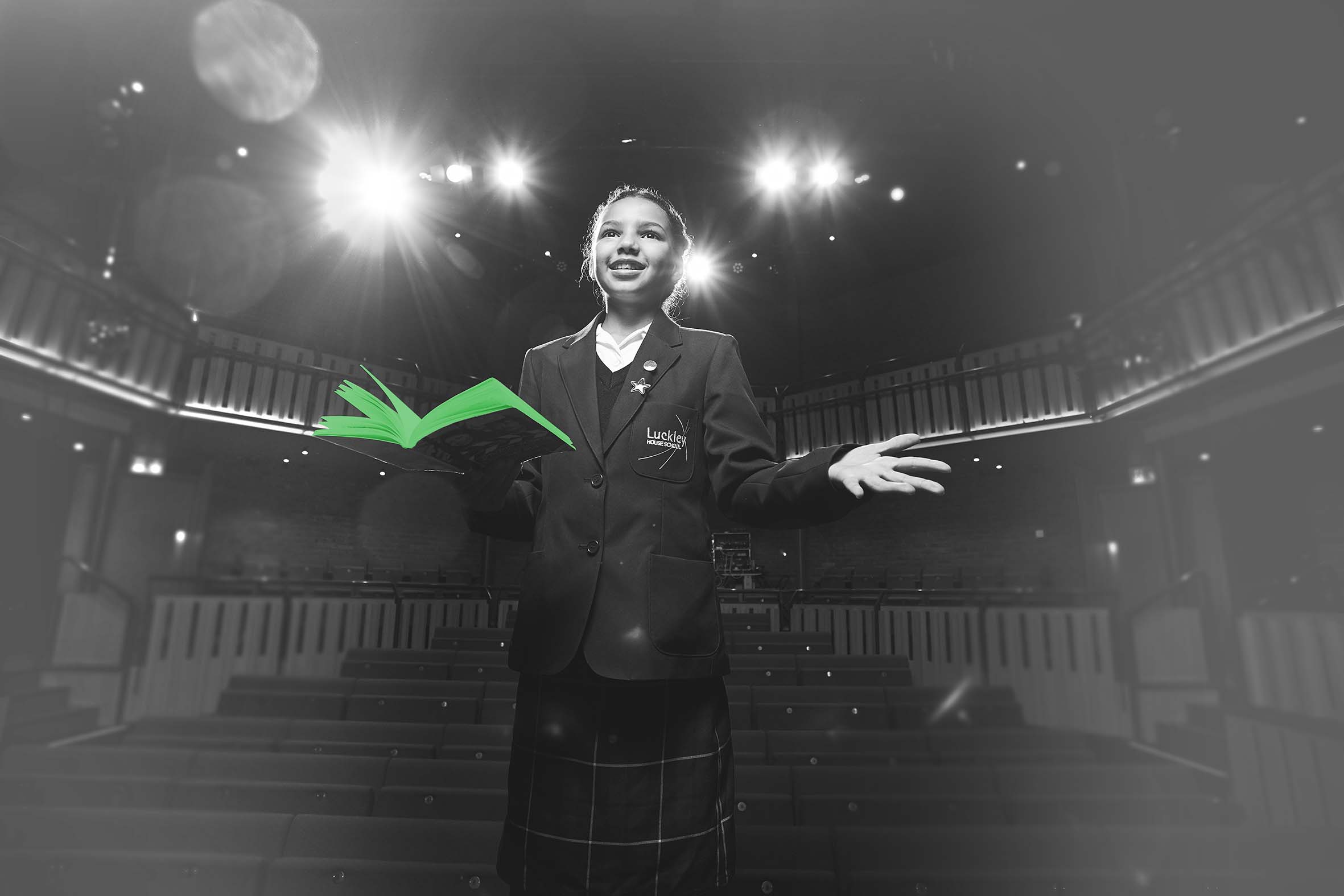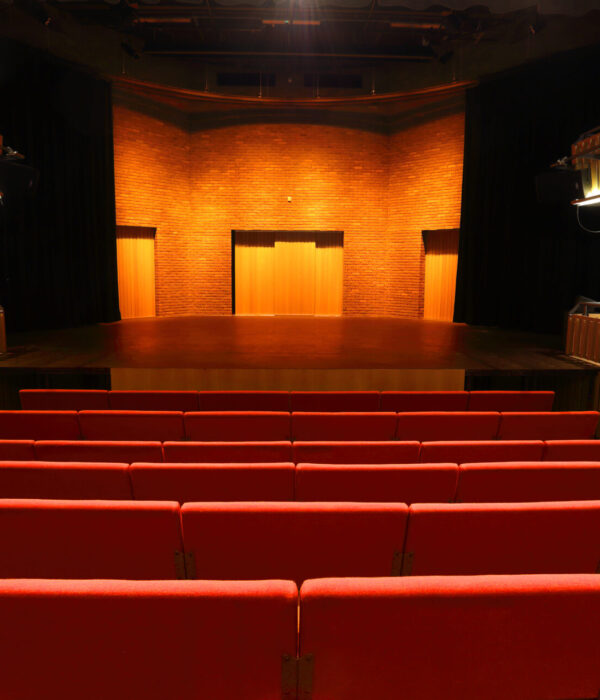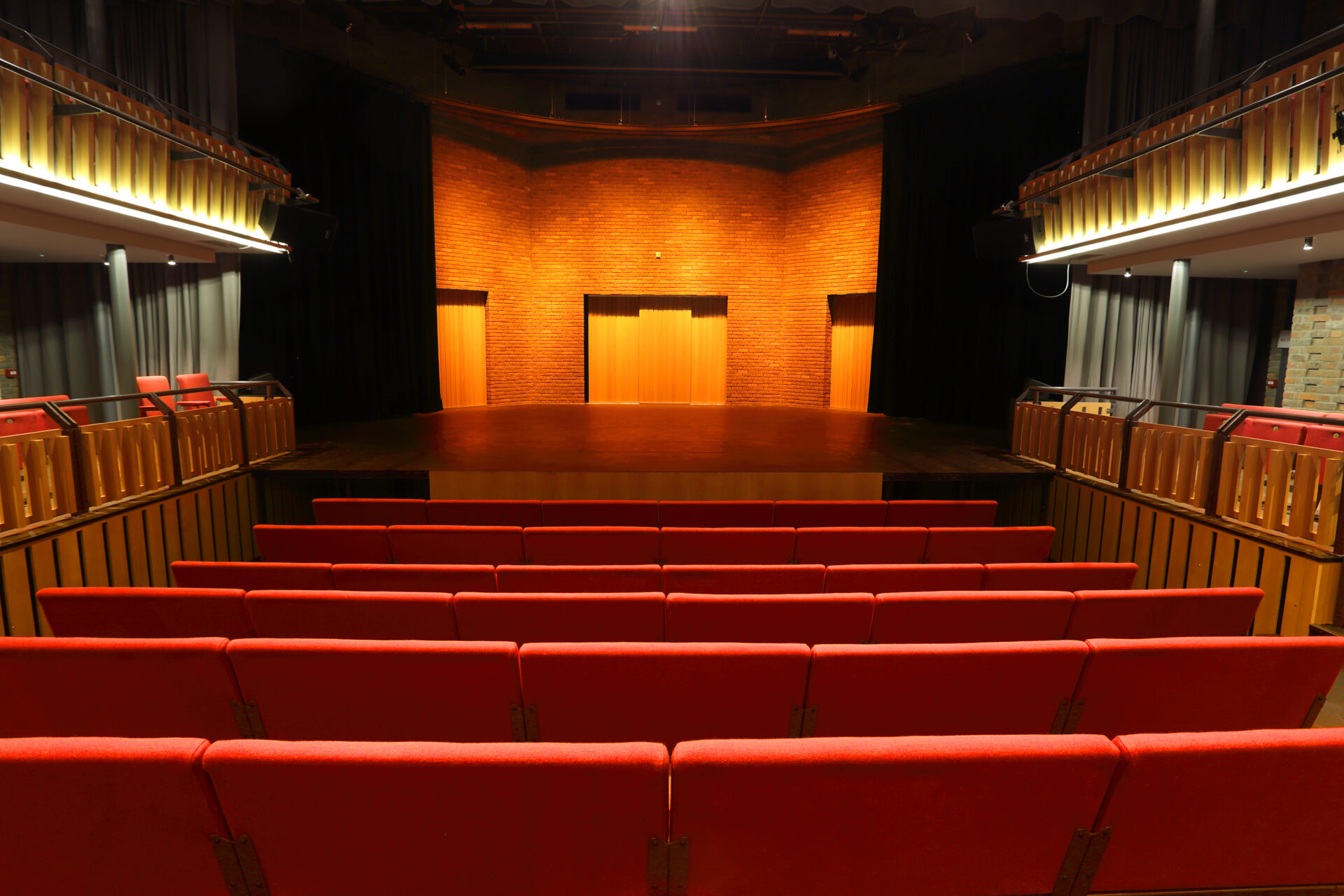A Level Drama & Theatre Studies
Individuals who can generate innovative ideas, who can work as part of a team to develop those ideas and bring them to a successful conclusion. These are the people who are sought after by universities and business leaders alike. These are the skills you gain from the Drama and Theatre Studies course. Moreover, discovering a passion for theatre and performance art will enrich your life, whatever career path you choose.
A Level Drama & Technical Design
Working alongside the actors, design students can explore how best to deliver themes and intentions to an audience through innovative use of sound, lighting, set and costume design. All students work towards practical examination performances and presentations showing off their new ideas. Working within a fully equipped working theatre, with an industry professional technician gives our students the highest possible support in creating new theatre.
GCSE Drama
Drama is an exciting, creative and challenging course which develops understanding of a wide range of issues and themes. By exploring a variety of theatrical genres and styles, through theatre visits, workshops and practical work, you will analyse your own process and skills, both verbally and in written form, stimulating depth and breadth in your subsequent performance work. These skills of self-evaluation, communication and co-operation are invaluable in whatever career path you ultimately choose.
Candidates are required to demonstrate knowledge and understanding of:
• different genres and performance styles, both abstract and naturalistic, and from a range of historical perspectives;
• the ways in which performers and designers communicate meaning to an audience;
• a variety of stage and performance conventions;
• appropriate drama terminology and how to use it;
• how plays are constructed and realised through the study of play texts;
• how to create, interpret and communicate meaning and characterisation;
• the place of drama within its social, cultural and historical context.
and will develop the ability to:
• select, synthesize and apply performance and production skills;
• acquire reflective and evaluative skills in response to a range of texts;
• work collaboratively and creatively.
